Kate Bowler: My name is Kate Bowler and this is Everything Happens. We become the sum of so many people throughout our lives. We have her laugh or his nose. His dry wit or her sarcasm, their big heart or grandma’s freckles. Or it’s that teacher who encouraged us when we need a boost. I actually have the identical voice as my best friend, and that’s because I met her too early. And that’s it. It’s just baked in now. So if you ever hear someone exactly like me but lives in Winnipeg, congratulations, you found my doppelganger. Some of the influences on our lives are great, and maybe sometimes we become who we are in spite of the people in our lives. Today, I wanted to talk to one of the funniest people on the entire planet about the people who made her her. What virtues did they create? What absurdity ensued? How does she think about how she impacts her own kids? It is a surreal day in my life, but my guest today is the comedian and host Samantha Bee. Samantha is known and loved for a weekly late night comedy series, Full Frontal with Samantha Bee, which was nominated for basically every single award. She was a host on The Daily Show for over a decade. Her work has earned 18 Emmys. She is also the host of a popular podcast called Choice Words, and she is actually, in fact, genuinely the funniest comic writer I have ever read. And I want to crawl inside of her brain and lay eggs, which is not useful to her or the world. But Samantha, it is surreal and wonderful for me to be able to look into your gorgeous face. Hey!
Samantha Bee: Oh my gosh, what an introduction. It’s like you’re talking about somebody—I’m like, I want to meet this person! She does sound, like she sounds great. Bring her in. Where is she?
Kate: She, you. It turns out you, since you grew up in the, like, lower middle class sort of superhighway to comic fame, I know that, I know that roughly rural southern Ontario is a hotbed. Was it even fair for you? I suppose we could start there.
Samantha: Just so many advantages. You know what I mean? It’s just starting, it’s such a place of privilege. Being in the, living in this condition.
Kate: How do you describe where you’re from? Because sometimes I go, because people end up being like, it’s like the Pittsburgh of Canada. It’s like… which I think is Hamilton.
Samantha: That’s Hamilton. That’s where my, my husband is from Hamilton. And I always say it’s the Pittsburgh of Canada. And everybody instantly understands. Everybody totally gets it in. In Toronto, I don’t know where, I don’t know how I’d describe where I grew up in Toronto. But all over the, like. All over the city. So there isn’t like even one area where I really identify with.
Kate: I never even say Winnipeg anymore. I just say, have you ever seen where North Dakota is? And then I’m like a couple hours…up. That’s what I do.
Samantha: Its north of that. A similar landscape, except I do remember, whenever I think about Winnipeg and by the way, I toured there as a costume character in a little show called Sailor Moon Live, and we spent many days just, like, entertaining the children of Winnipeg, but we ate so many meals in a vegetarian restaurant that was in a tree. Does that, is that memorable to you? Because I mention it all the time and everybody’s like, what? Did you, were you were on acid when you were doing Sailor Moon Live? And I’m like, no, it’s very good. It was a it was a tree-borne vegetarian restaurant and I loved it.
Kate: See, now I need, I’m going there next week and I’m going to ferret this out for you. Because we do collect, it has like, it has the world’s largest replica of a Van Gogh painting.
Samantha: Fantastic.
Kate: It has the world’s largest northern lake trout. I mean, we got…
Samantha: What? Like it’s dead now, but it’s on a wall?
Kate: It’s just, I think…
Samantha: It’s just, it’s just… It was killed.
Kate: So you. When I was discovering your life, your, unique, your rarefied kind of weirdness.
Samantha: Thank you. You know what? I love that so much. I’m crying. So happy to be here.
Kate: It made a really, I think, remarkable little constellation of virtues. So I kind of wondered if I could ask you about different people that made you the, I’d say to grab bag of eclectic joys.
Samantha: Please do. I wish you would. I wish you would.
Kate: Because when you were very little. You lived in your own apartment all on your own.
Samantha: I did.
Kate: Would you describe the, the independent spirit in which you spent your early years?
Samantha: Well, my mom. Okay. My mom had lived with her long term boyfriend, and he lived in an area called Parkdale in this enormous house. It was so big. And it had actually been a hospital. It was a veterans hospital. So all of these and it was all it was like a huge apartment, but it really was more of a rooming house. So once you left the kind of central apartment which was, I am comfortable saying it here, it was disgusting. When you left the kind of central apartment there were all these rooms with or without bathrooms, and some were individual apartments. It kind of like depended, and people had, many, many people had recuperated from their war injuries and died. Or it was like a mini skid row. And a lot of, just like a very… What a melange. Like what a…? What a ghostly house it was. It was so haunted. It was just, like, saturated with, and I’m not even a really ooo-y ooo-y person. But this place was terrifying to me. And my mother and her boyfriend. I was eight, and they were like, why don’t you just take, it was, first of all, let’s preface this—I was born in the 196s, so we’re talking about the 70s, when nobody cared what their children had whatsoever. Everyone was like, be free. I don’t know, are we?
Kate: Come back if you want to, I suppose.
Samantha: We’re roomies, don’t take my smokes. Like, don’t. So we, they just kind of gave me an apartment upstairs at the, at the belfry, it was like the belfry. It was the tippy top apartment. It did not have—it had a full kitchen. It was gigantic. It had a full kitchen and a huge living room and a big bay window that I would stare out of and all the other children playing in the streets. I was just alone in my belfry with my record player and my ABBA records and my pack of tang, which I obviously ate straight from them envelope, but no bathroom. It didn’t have a bathroom, so if you had to pee, you had to go down the hall, like way down the hall.
Kate: The terrifying hallway.
Samantha: The terror hall. And I was comfortable in my own apartment, and terrified of every inch of the hallway and it was like multiple levels, too, like stairs and spirals. And it just went on forever. And so I would always kind of eat or go to the bathroom in the main apartment and I would have to run down. So every time I left the apartment and locked the door, I ran full tilt down.
Kate: And that’s how you became a professional sprinter.
Samantha: And that is how I became. That’s why I’m so physically, what a phyical specimen today.
Kate: Dominating. I was like, sit down, it’s overwhelming.
Samantha: It’s too much. But I just know that there were so many haunted spirits in that places. I can just pictured like, just like axes being thrown at me from behind.
Kate: It’s like a full Indiana Jones.
Samantha: Full Indiana Jones. Yeah. Every time. Every time I would be sweating and out of breath when I would get to the apartment and they’d be like, what’s with you? I was just running.
Kate: We’re going to take a quick break to tell you about some of the sponsors of the show. Don’t go anywhere. We’ll be right back.
Kate: That’s a perfect description of your kid brain and your strangely adult brain early on, because you had this sort of, you had very adult knowledge about the world that I imagine made you kind of feel not exactly like a peer. And yet you’re, you know, my kid is ten, and he’s in that, dream boat. Hey, could you, but also, please, could you open the closet entirely and turn it off, turn the lights on and off one time? And let’s just before we shut this down? But it’s a strange thing to be a kid and to not know… To know you’re not like other kids.
Samantha: To know you’re not like other kids. To be aware of all, well, you know, it’s so funny. I don’t often think of it, but to be aware of every possible monster. You know what I mean? And but not to really be able to pass what’s real and what’s not real, because also like, just our levels in the 70s of exposure, like if you were left to your own devices, which I’m an only child. So I really existed in adult spaces most of the time. You were just had this tremendous exposure to all of these wild ideas that you didn’t really understand. Movies you shouldn’t have—movies I would never let my children have seen at that age. And they were just kind of on TV. Salem’s Lot was on TV. We all knew about vampires because it was the only game in town. You were like, well, let’s learn about Nosferatu. I don’t know, you’re seven. You’re ready. You’re ready to learn about the undead. Of course!
Kate: One of the strange things I think about, especially raising, being an adult kid, looking at kids, knowing exactly how old you were and how radically different it is. Do you find that that independence kind of gave, did it give you a kind of iron spine? Like, did it give you a feeling of independence later, or did it just. Make. You have to really set your own dials of your own fears and what was real, and learn to trust yourself differently as you kind of came of age?
Samantha: I think a little bit of both. I think it sets you up for adulthood in a way, you’re definitely more advanced, you know, just like the things you think about are different from the other kids. I have always been really envious of people who have siblings, because I always just wanted to have someone to bounce ideas off. You really don’t have any one to bounce ideas off, so you live with bad ideas for longer.
Kate: Yes.
Samantha: You live with bad deas for longer, and I could have used like a little more friction, you know? I could have used a little more kid friction in my life. Like, someone who would say no to me as opposed to, you know? It was like benign neglect, I mean, I would think we know this now, we were just like these latchkey kids learning how to make spaghetti by ourselves, you know what I mean? So in a way, I and I, I remain independent to this day, but I sort of I have to really… It really was a stretch to learn, like how people with siblings have arguments. Do you know what I mean?
Kate: Yes.
Samantha: Does that make sense?
Kate: It totally does.
Samantha: Because I never really knew until I was well into adulthood that you could just, like, have an argument with somebody, and it didn’t mean that your relationship was severed forever. It was just part of, yeah, the daily life of someone who was just like, used to kind of like having regular little fights. Fights meant so much to me, it felt so monumental. When it’s really just a little thing. Does that make sense?
Kate: Yes, yeah, it totally does. And just to have the, to practice the actual dynamic feeling instead of feeling like every fight is an event that creates this high drama or trajectories, it doesn’t have to be. Just kind of have a little give, a little bounce.
Samantha: So you could have a disagreement with someone that feels really heavy, and then you just kind of walk away. Like I have three children of my own now and they have fights all the time, and then they go away. They take three breaths and they’re back to being best friends again. It just happens. It’s so organic for them and I admire that and I have learned a lot from it. But it took a really long time to learn those lessons about how to argue.
Kate: Yeah, because you didn’t get that from friend-friends. I was also, just saying, I was also a very, a just unpopular child. And it meant it took longer, I mean, I was early teens by the time I found anybody who I could have that kind of thoughtful argument with who would be like, Kate, you can’t say something devastating and then walk away. I know it’s funny, but you can’t say something devastating.
Samantha: Okay. That’s fair.
Kate: Oh, oh. That’s cruel. Got it, got it. That’s what cruelty sounds like.
Samantha: Let me learn some limits, I didn’t realize. Okay, okay.
Kate: Oh you do need to me to be on time or else you don’t want to hang out with me anymore? Got it, got it, got it. Okay. Thanks, Chelsea. But it did take longer, I think, to develop some of the like skills for intimacy.
Samantha: Skills for intimacy. I like the way that you put, yes. So maybe you learn how to make spaghetti sooner. You definitely do. There’s things you learn like, survival skills, you learn those. You learn how to be alone, which is a skill, you know, to do it well, but you don’t learn intimacy in the same way. I think that’s really I’m going to I’m going to onboard that, I’m gonna onboard that. But you’re totally right.
Kate: I thought it was remarkable how much your step mom, in your life, took on the role of attempting to socialize you into a different kind of child. She she was really hoping that you might, might go outside. My dad has a theory that air conditioning was developed so that it’s really just it’s defunct. It’s no longer necessary. That’s what the inside. It’s already regulated, why even risk it? I went on a run the other day. I came back and I was, like, tired because it was a run. And he looks up at me, he’s like. What were you doing? And I was like, oh, I was just on a run. He was like. Well, I wouldn’t do it. As if I was like, out there just risking my life.
Samantha: Right, you have a finite amount of energy in your body and you don’t want to expend that. Don’t do that.
Kate: Exactly. But your stepmom was like, she looked at you, took one look at you, and she seemed concerned.
Samantha: She was concerned because I was like, a little miniature, you know, I also had my mom and I had my grandmother. And so I, you know, was just having all of this adult life. And so when I came to her, she came from a big family. She had siblings she had to, like a lot of, you know, like fights and color and shades of different stuff and energy. And there was a dynamism, I guess, in her, in her family growing up. And so she didn’t really understand how a little girl could be like, “Thank you, I don’t prefer green beans for dinner.” It was not really a choice, like choices that I was very comfortable…
Kate: You’d been making your, “I’ve been choosing my own dinner since I was two, sweetheart.”
Samantha: Ordering in restaurants. This is not a problem, I, of course, I’m having Coke with my meal. That’s what we drink in our home. And she had such traditional ideas about what a child should do and was like, definitely go outside and play. Now we’re going camping and you’re going to hang out with your cousins. And I was like, what are these foreign ideas? I have my books and we’re fine.
Kate: She doesn’t even sound like she was so tough. Tell me, picture her, because, when you describe her determination to go camping, she’s incredible.
Samantha: She’s a force of nature. Truly. She’s such a good, we had a tent trailer and it was the cleanest. It was, it was before the advent of cordless vacuums. But I’m telling you, if we’d had cordless vacuums, we would have been vacuuming that thing just like tip to tail every day. She was incredible. The things that she introduced, the outdoors.
Kate: And she had like twelve-course campfire meals.
Samantha: twelve-course campfire meals, lots and lots of clean up. We camped all the time. Not 100% sure that she actually enjoyed it, but she has, like that old timey vigor, you know what I mean? Like, she has her specific camping clothes, which include, like rubber boots and a nightgown and a handmade quilted jacket that she sewed herself. And if there was a campsite like adjacent to our campsite where the people were a little loud after 10 p.m., she got had flashlight and she would march, like, stomp over to their campfire and shut their party down. And they were too afraid to, they were just too afraid to defy her. They were like, party’s over guys, she said so. And she was like, go to bed. This is ridiculous. There’s children. Incredible, I love her.
Kate: Your ability to shame strangers does sound like it came directly from this legacy.
Samantha: She’s a shusher. She is a shusher. I’m less of a shusher, actually.
Kate: But you are an excellent, “Oh, no, sir.”
Samantha: No, sir. Yes.
Kate: I’ll have none of that guff, geo-politically, thank you.
Samantha: No, thank you, sir. No guff. Thank you. That is true. That is true. I stand for no guff.
Kate: Oh exactly. You’re a guff-less woman.
Samantha: That’s right.
Kate: We’re going to take a quick break to talk about the sponsors who make everything happen at Everything Happens. Don’t go anywhere. We’ll be right back.
Kate: You also had a lot of your grandma in your life.
Samantha: I did.
Kate: And I really liked the idea that she was really in it to win it on all aspects of your life.
Samantha: She was. Yes, she was.
Kate: Matching outfits.
Samantha: Matching outfits, she bought me, I wrote about it in the book, but she did buy me. She was so, she was very fashionable. She was like a very together. She had a job. She was the secretary of the Catholic school that I attended, and she was always very put together. She was definitely like a ground up person. She was like, put yourself together and nothing can hurt you. You have, she was like, good shoes and a nice coat. You’re going to be fine. Top and bottom. Start with the, start with the top and bottom and then fill in the blanks. But be presentable. Do not be caught, do not be in an ambulance with dirty underwear. Just like set yourself up for success. She just was that person. And she had a, you know, she had a job like she had a profession when lots and lots of other woman didn’t. She worked my whole life and she was just kind of smart and together and was such a cheerleader. Yeah, she was great.
Kate: Was she like the big encourager in your life?
Samantha: Yeah. She was really the person who was, she was dedicated. And just dedicated because she didn’t go to college and my mom didn’t go to college. And she was like, you are going, you are going to, I mean, in Canada, it’s university here, it’s college. But she was like, you are going to university and I’m not gonna hear, there’s no other, there’s no alternative. It’s happening. Someone in this family is going to we’re going to create a legacy and it starts with you. So let’s go. And so there was never any she never really gave me any. I never really wavered from that. She was the most ambitious person in for me. In my life.
Kate: It’s weird how much it matters having someone set a standard for like like I can’t I can’t go lower than that, so let’s just do that, I suppose. It’s going to be more work to fight you on this.
Samantha: 100%, and there was no real reason to fight it. It just was a constant. It was like a it wasn’t even like a lofty goal. It just was a thing that you had to do in order to pass through the gates of adulthood or whatever. And she just saw it that way, and it was so clear in her mind. So I was like, oh, okay, I see, let’s go.
Kate: I have a really small family, too. And I think and I, you know, so I never really knew what other people did. They seemed great, good for them. But one of the expectations that it took me forever to realize that I had was that, nobody else was going to make my life interesting but me. There’s never like a, “And then you’ll get married and that person will give to you purpose.” And in like, the future. And I mean, I did get married, like hilariously young. But when I was 15, when I, met him, I was like, hey, so I’m probably gonna get a PhD. So if you don’t really kind of sign on to the school plan, it’s going to be a little awkward for you. And then just kind of moved on. And he was like, he’s like, I remember exactly where I was standing, where you when you told me you were going to university.
Samantha: That is so funny.
Kate: I think that’s because, I mean, I had these standard-setters that were like, well, I guess you probably get better, get on with it. No one else is going to make this happen.
Samantha: That’s amazing. Oh my gosh, I love that.
Kate: I guess what that kills me, honestly, because you’re so delightful is that you didn’t really get to… All this input didn’t exactly contribute ever, with you having, like, peer experiences, you’re still just wearing, like the version of the quilted vest and the sensible turtleneck and loafers like to the school dance. Like, you had a lot of input in your life. But you probably dress, I mean, like the most polished 57-year-old big secretary.
Samantha: To my prom, and I am not exaggerating when I say this, and I have photographic evidence of it, and I, I can’t believe it. I wore a pantsuit, I wore a kimono-based…it was like a literal outfit that you would have seen on The Golden Girls, and Bea Arthur was wearing it. It is slacks like there’s no other way to. They weren’t really pants. They were slacks. They were like, loose, loose, loose, like in classic ways. Like just like a a very relaxed pant. And we’re all used to that now. We’re all like, yeah, relaxed pants, of course.
Kate: But with a waistline.
Samantha: We’re talking about 1987. People were not, everyone was like wearing tube tops and like, with big hair. And I was like, no thank you. Some elastic waist pants.
Kate: I like the diaper look to be more on the outside.
Samantha: Yes. Thank you. A flat, a flat heel thank you. And a tank top and then a just a kimono jacket, like, all in cream, all in cream with a jaunty scarf. It is… The look on my date’s face was, it was the antithesis of, like, there’s no way that you would look at it and go “I’m getting laid tonight.” There was no hope. No, it just says no. Every inch of the garment. And I thought it looked swish. And my grandmother was like, I love your outfit. That is the cat’s meow. I was like, thank you for saying so. I agree. I mean, we shopped for it together, of course I chose a Bea Arthur outfit!
Kate: I like that you can describe the fashion years at the time as like “Going for more of a postmenopausal kind of…”
Samantha: I need it to be loose. I need it to have air pockets. I need to be able to flap the wings in case I need to cool down. You don’t know if someone’s going to ask me to foxtrot. I don’t know what these dances, what is it, a sock hop? Like so, so off and of it every I can’t. I wouldn’t even wear it now and I’m 54. I wouldn’t even wear it now.
Kate: But now I want you to because it sounds…
Samantha: I wish, it would still fit. There’s no question.
Kate: You should do one recreation. Just for Halloween. Just one year. Dress as yourself.
Samantha: Dress as myself! I did crimp my hair. Tthat was my only, that was my only period specific detail. Crimped hair and a ladies pantsuit. Oh my God.
Kate: The the description of your teenage years, then, it kind of sounds like the sort of the wheels kind of came off on, like, oh, I’ll do what I want to do, thanks.
Samantha: Yes.
Kate: And I was sort of especially interested, honestly, in the… Because you turned out beautifully. You just turned out so beautifully. But there were some bad faith actors in there that you had to figure out some kind of way of, like, excising them from your soul.
Samantha: I did.
Kate: And I just kind of wondered if you could tell me about that season and how you figured out how to kick them out.
Samantha: Well, I had a very. I just met someone. I met a boy. He was truly, like, in a very cliche way, a very bad influence on me. And I was completely enchanted with this other way of living, like he was a small time criminal. I thought he was really cute, and I just did kind of what he wanted to do. I just went all in on his hobbies, which included such things as crime.
Kate: Do you remember the Crime Stoppers ads? Did you ever look at that and be like, oh my gosh, they’re coming from me.
Samantha: That’s me.
Kate: Canadian neighborhoods.
Samantha: That’s right. But we I, I it was such a weird time because I participated in his crime sprees with them. I was not, like, very good at it, but I was like a spotter or for hit community. I can’t even believe this stuff. As I say it now, I’m so… I’m ashamed of it. But I don’t mind talking about it because it’s just an interesting, just a kind of a facet of who I was in. You know, he stole cars, he fenced stolen goods. He would take the money. We threw these humongous parties. We would rent hotel rooms. Like, I literally would go into the fanciest hotel in Toronto. I had braces, but I knew how to dress it, I knew how to dress up enough that they would take me seriously. I’m like the kid from Home Alone and just be like, my parents are waiting in the car. I’m renting this suite at the top floor of the hotel, and I just had all this cash and they would just give me the key. They were like, thank you so much. Go have a party.
Kate: Mrs. Bauvidere.
Samantha: Oh, you seem like you know the contours of a hotel, so please come on in and bring all your friends. And, he was terrible to me. He would like I would say that he emotionally abused me for sure. And I was all in for a long period of time. I lost my friends. My family couldn’t stand me. I was horrible to be around, and I don’t, I mean, really terrible. But I also, you know, it was a time it was it was very interesting because I was behaving so badly, but not really taking drugs or not really doing any of those kind of like, cliche things. I just was such an adult who was doing terrible stuff that they didn’t really know about, and I just wouldn’t come home. I just wasn’t coming home until very, very late and not wasted, nothing like that. Just in cold awareness that no one could stop me. And then of course, everyone in your life tries to parent you. Then they’re like, oh, you have a curfew now. And I was like, no, I really don’t.
Kate: Strangely. I’ve reviewed the evidence.
Samantha: If I didn’t have one when I was 12, I definitely don’t have one when I’m 15, so I don’t think so. So it was a brief kind of interlude, where. And I was so unhappy. I was critically unhappy, and I was, I had skipped I was skipping school like crazy just to spend time with him. I was so not present. I was just not myself. Because I’m a studious person and I, I like to get good grades. I’m a nerd. I’m just, you know, that’s just who I am. So this was very, this was an outlier time, and I really panicked. I skipped all my Christmas exams. I didn’t go to a single one of them, I hadn’t studied, I was like, I don’t want to fail. So, I panicked. I panicked at the end of this time period. I had gotten zeros and I was just, like, not prepared to get bad grades. So I tried to break my own hand with a rock.
Kate: No.
Samantha: Yep.
Kate: No.
Samantha: So that I could pretend that I had sprained my hand and couldn’t write any of my exams. And I remember going into my mother’s room at 2:00 in the morning with just, like, a splint on my hand. I did not actually successfully break it, I sprained it terribly. It was immensely swollen. It was a horrible, I mean, oh my God, I just hit it on the bumper of a car with a gigantic rock. And then I went into my mother’s room at 2:00 in the morning, and I pushed her away, and I was like, “I didn’t do any of my Christmas exams. My hand is sprained.” And she was like, “What’s going on?” And I was like, also, I’m switching schools and I forged her signatures, withdrew myself from my high school and enrolled at a completely different high school. And transferred over all my grades, and they never asked to meet a parent or anything like that. I just forged signatures and did it all myself and created. And then I broke up with my boyfriend and completely changed my life.
Kate: Oh my gosh.
Samantha: Yeah, isn’t that crazy? It’s a, it was like, it was honestly just like a Hand of God moment where I just looked at my life and went, everything is bad. This is all terrible. This person is holding me back. I was just like, oh, I don’t want this anymore. Like, he tried to be mean to me one day and I was like, I reject you forever. Get out of my life and never call me like, lose my number. We’re done. And he, could not, it really was a Hand of God moment. It was like somebody put their hand on my shoulder andwent, stop it. This is not who you are. It saved me. I don’t even know what it was. It was like a force outside myself. And I changed my entire life. Went back to school, did well again. Made new friends. Created a whole new path.
Kate: Yeah. Fully turned the page.
Samantha: Fully turned the page. Like, turned the page hard. And it was not easy, because he became scary.
Kate: Yeah I bet.
Samantha: But it was easy in the sense that I had cut him out of my heart so…with such like a excision, it was surgical and it happened overnight. It was just like the lights went on.
Kate: I imagine that is very encouraging for people who feel like they’ve given their kids a lot of love in hopes that or like, didn’t know exactly when to pump the brakes on their behavior and then it kind of spiraled out of control. But just to be like, I still love you. At that time, were all the adults in your life still able to communicate their love or they mostly just looked terrified?
Samantha: They were terrified of me. I was terrified. I really was terrifying. A really, really like in a cashmere sweater set with pearls and terrifying at the same time. But they were always loving. Like there’s no, I mean, we’ve had so many different permutations of our family. We’ve been in all different stages of marriage and divorce and like a long family legacy of breakups and all of these things. But there has been a consistent throughline where I just really have always truly been loved and knew that. I definitely took those people for granted for a long period of time, but it was when the track righted itself and all the pieces were in place. Nobody believed me for a little while, and I don’t blame them for that. I really don’t blame them for that. Yeah.
Kate: You met your husband young too, in a very normal way. And I wondered, well, a couple of things. One, when he came into your life. Because one of the things that I, because I met my husband young, one of the things I learned from him was some of the kind of to fill in the gaps of some of the missing pieces I’d had in my earlier, in the lonely years. In the I don’t know how to fight years, you know. In the like, am I doing this on my own or how does this go? Right. But it was, you know, and just to have an extension of that, like when friends teach you how to fight, when friends teach you how to be normal. Did he come into your life early enough that you were still very much a work in progress.
Samantha: Very much a work in progress? Not a lot of successful, like I had a lot of boyfriends, kind of like longer term, but none of them were… It’s so funny. It’s funny that we’re talking about this right now, because I was just writing all of this down in my phone on the subway on the way here, trying to articulate it. I was like, he was like, oh, like seawater coming in to just fill up all those little areas of just not…having no knowledge or like a deficit. He made me more whole. I think he made me more, he made me like a better version of myself almost instantly, by virtue of him being a whole person and him just being a normal person.
Kate: But you didn’t need to be normal. You were Sailor Moon. For people who don’t know, Sailor Moon, kind of a celebrity. So you’ve been a celebrity for a really long time. I guess that’s what I’m saying.
Samantha: Well, if you, you know, if you followed, the live performances at Cider Fests and saw their local cider fest, Southern Ontario, the prairies, what have you, Thunder Bay, then definitely huge celebrity. We met together as costume characters in the, as I’ve mentioned, the Sailor Moon Live theater extravaganza.
Kate: Sailor moon was a cartoon that was on. It was on Saturday mornings in the 80s for sure.
Samantha: Sailor Moon is still popular.
Kate: Okay. And kind of like a sexy cartoon robot looking.
Samantha: She’s a sexy sailor scout from outer space. And she has a boyfriend and his name is Tuxedo Mask. And that is how I met my boyfriend. We, he was in the B cast. Let’s be fair, I was in the A cast. He was a fill-in guy.
Kate: He was the fill-in guy.
Samantha: The fill-in guy, and we did not like each other or connect for a long time. For a while, for a while.
Kate: Could I just like picture what a human woman, or human extended teenager? Young adult? Were you young adult?
Samantha: Not that young. Let’s, I wish I had been younger. I was an adult woman.
Kate: Oh no, you’re like, I was 41.
Samantha: I was in my late 20s.
Kate: Were you, you where in your late 20s?
Samantha: I was in my late 20s and he, you know what? I wrote this down on my phone today. I was like, you know what it’s like when you meet someone and you’re at the rock bottom of your career and they’re there too, and you’re performing at a cider fest, there’s nowhere to go but up. And we did go up. We did. But we knew each other then. And if you can know and love someone then, when you’re both putting a wig on, like when the wind is blowing and you’re at the Bolton Cider Fest, you can love each other through almost anything.
Kate: You’re taking questions from kids.
Samantha: You’re taking questions from kids. And, and it’s like, what’s your sailor sign? And you’re just like looking into each other’s eyes, going, I didn’t… I went to theater school and I didn’t think this was… I thought I was going to play Lady Macbeth. And I’m, I’m like, Sailor Moon is a Gemini. Honestly, just like she was born on June 5th. And that makes her an Ares or I don’t know what, I can’t remember.
Kate: But somehow it feels, I guess, when you know the, the strangeness of life and you know what it’s like to be on the outside, that stuff really carries you into the present. And to be able to see the inside outside-ness of things.
Samantha: I like the way you’re describing it. I think you’re totally you’re totally right. Life is very serious. Like how easily things happen that are just like crushing and terrifying and but if you can take a step back occasionally and have one of those moments where you’re like, this is out of my own body, I can’t control this, I love it. I’m going to remember this, this is going to be a great story. Just a great story.
Kate: Yeah, I guess that’s right. It’s like seeing the story of it.
Samantha: Seeing the story. Yes.
Kate: Samantha, I’ve had the absolute best time talking to you. Thank you for being my dreamboat friend.
Samantha: I’ve loved this. This was a dream come true.
Kate: I’m not someone with natural self-esteem. So when I talk to Samantha about the people who made her her, it reminds me of all the people who made me, me. I like to use a very specific analogy. So like, stick with me. But it’s the analogy of flying buttresses. Okay, so my dad is a historian, and these are the kinds of metaphors that I grew up with. But buildings could only get so tall without having these massively thick walls. Frankly. And there was a point in the medieval era where, like, they just kept collapsing. Also, they couldn’t have nice glass or fancy ceilings. So enter Gothic architecture. Medieval architects understood that you need to build really thick walls to build a tall building, but then they just started messing around with it. What if you could build taller, thinner walls, walls with gorgeous stained glass and larger windows that let the light in? Well, you’d need some external support. Flying buttresses were engineered as support beams to provide lateral support for a fragile wall. And sometimes they would add, like a lot of doodly dads on them to make them extra fancy. So when you’re not able to be quite so tall and strong, maybe you need some flying buttresses. Pillars who hold you up? Who teach you how to fight or apologize or forgive or calm down. Or show you something that looks like honesty or intimacy. There who remind you who you are and that you’re loved. The people who look at you and see you for exactly who you are and not just what happened to you. The other day, my husband’s uncle, which is frankly in my mind, my uncle, Uncle Kurt, was in the Sahara, tenting as he does, and he met a wonderful group of friends, and they had never met before, but they were traveling together. And when he asked them what they were to each other, they said that they were flying buttresses. Which makes me know they’re actually my people. So, guys, somewhere out there, if you traveled in the Sahara desert with friends calling yourselves flying buttresses, and you do not email me to tell me exactly who you are, I will die horrified. But I love the idea that there are groups of people out there who know how to love and support each other. So here is a blessing. For all the friends who hold us up. And this is from my book of blessings, The Lives We Actually Have.
Kate: God, you called me to love. But people are inherently risky. Telling my story, being known, asking for help. Complaining again about the things I worry might sound cliche by now. Shouldn’t I be over it already? But something is happening when I am known. I am becoming stronger somehow. I am reminded of the walls I’ve seen holding up cathedrals, flying buttresses engineered to provide support for a fragile wall, allowing them to be built taller, more stunning, more covered with ornaments or filled with stained glass, letting all the colorful light dance in. The walls would collapse without them there, but strengthened. They create something beautiful. God, when I’m no longer quite so tall and strong, give me those who hold me up and remind me of who I am, and that I’m loved. Yes, I will get back up again today. Yes, I will get those kids cereal and help my parents with an errand. Yes, I’ll go to work or come up with something better to do with retirement hours. I will try again. I know I will, because someone else’s absurd faith in me is fortifying. So blessed are our flying buttresses for they hold us up when everything seems ready to come apart, allowing us to face today. Not because we’re doing it alone, but precisely because we aren’t.
Kate: Thank you to all the flying buttresses in my life. I do not deserve you. Now, dear listener, tell me, who are yours. I love to hear. Find me online at @KateCBowler. Any big thank you to our incredibly generous and interesting and fun partners who make all things possible. Lilly Endowment, the Duke Endowment, and Duke Divinity School, thank you. We love getting to make things alongside of you and this podcast is full of my flying buttresses. Thank you so much to my team. Jessica Richie, Harriet Putman, Keith Weston, Gwen Hegginbotham, Brenda Thompson, Iris Greene, Hope Anderson, Kristen Balzer, Jeb Burt, Sammy Filippi, and Kathryn Smith. Thank you. And we do it all because of and for listeners like you. Yes, now googling vegetarian treehouse restaurants in Winnipeg, or you on your way to that difficult therapy appointment. You are our absolute favorite and we are so grateful to get to make useful things for you. Make sure you’re subscribed to the show so you don’t miss an episode. And while you’re there, leave us a review on Apple Podcasts and Spotify. It means so much and I promise it just takes a couple seconds. Or call us and leave us a voicemail at (919) 322-8731. Next weekI have the privilege of talking with Judy Woodruff, and she is just as curious and kind and warm as you might imagine. I can’t wait for you to hear it. Until then, this is Everything Happens with me, Kate Bowler.
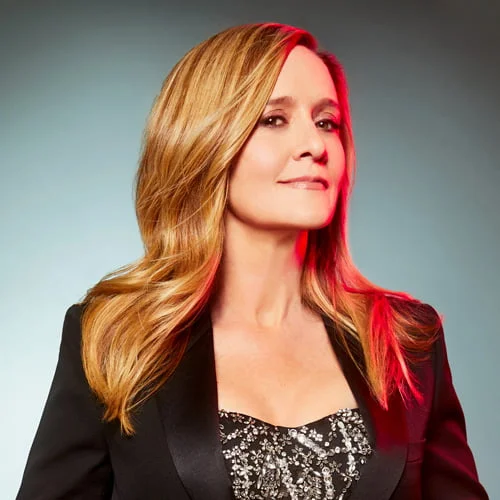

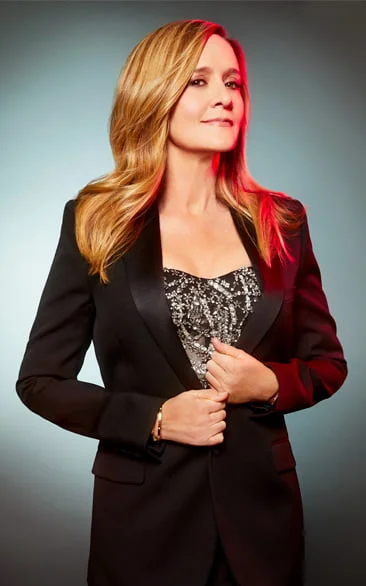
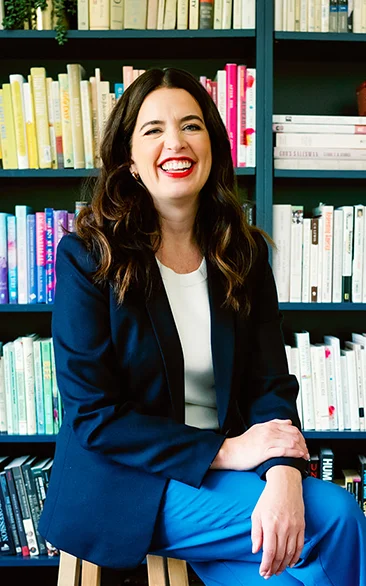








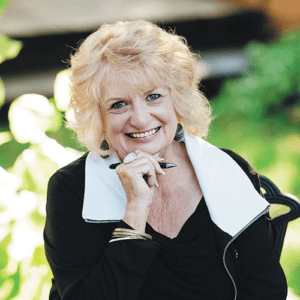

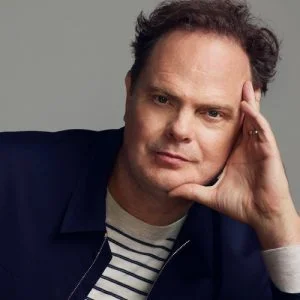

Leave a Reply